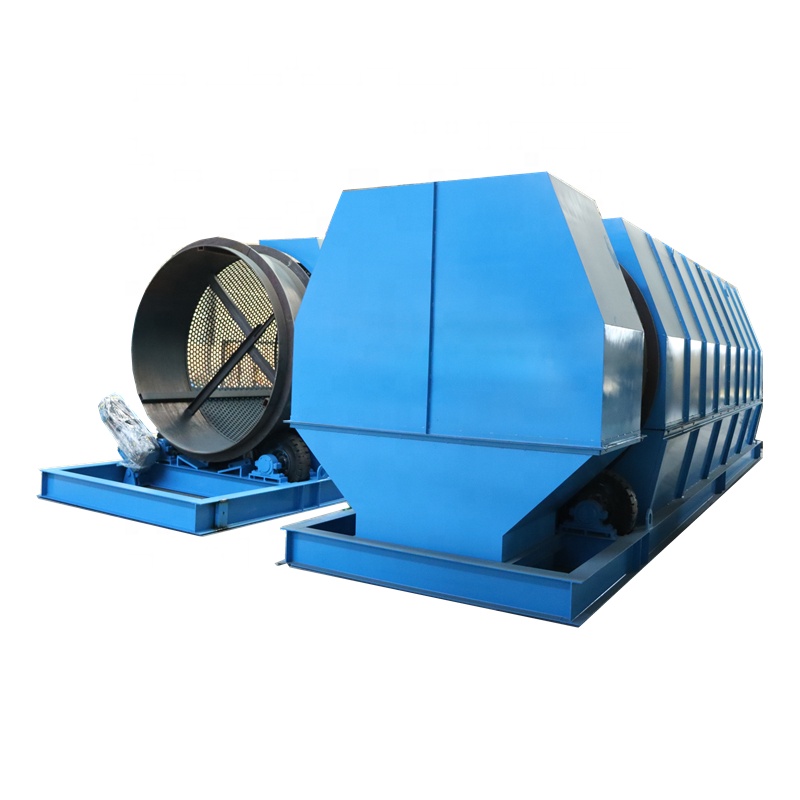

नोभ . 20, 2024 15:17 Back to list
The Importance of Copper Wire Recycling Machines
In an age where environmental sustainability is becoming increasingly critical, the recycling of metals, particularly copper, has emerged as a vital practice. Copper wire recycling machines play a crucial role in this process, allowing businesses and individuals to efficiently recycle and reclaim copper from discarded wires and cables. This not only helps in conserving the environment but also brings economic benefits.
The Need for Copper Recycling
Copper is one of the most widely used non-ferrous metals globally. Its excellent conductivity makes it an essential material in electrical wiring, telecommunications, plumbing, and various industrial applications. As industries continue to expand, the demand for copper remains high, which results in significant amounts of copper waste. According to estimates, around 90% of the copper used in electrical products can be recycled without degrading its quality. This makes recycling an important solution to meet the rising demand while reducing the depletion of natural resources.
Recycling copper also has substantial environmental benefits. The extraction of copper ore is an energy-intensive process that emits a considerable amount of greenhouse gases. By investing in copper wire recycling machines, communities can minimize the environmental impact associated with traditional mining and metal extraction.
How Copper Wire Recycling Machines Work
Copper wire recycling machines are designed to separate copper from insulation and other materials. The process typically involves several steps
1. Shredding The first step involves feeding the wires into a shredder, which breaks them down into smaller pieces. This makes it easier to separate the copper from the insulation.
2. Granulation After shredding, the material is further processed through a granulator. This machine reduces the size of the copper-rich particles and the insulation further, preparing them for separation.
3. Separation The granulated materials are then passed through various separation techniques, including air classification and magnetic separation. These processes help to remove the non-metallic materials, leaving pure copper.

Benefits of Using Copper Wire Recycling Machines
1. Economic Advantages Recycling copper can be a profitable venture. The market price of copper often fluctuates, but it remains a high-value metal. By recycling scrap copper, businesses can turn waste into profit, providing an incentive for more extensive recycling efforts.
2. Job Creation The recycling industry, particularly for metals like copper, creates jobs in various sectors. From collection and transportation to processing in recycling plants, this industry supports many livelihoods.
3. Environmental Conservation By recycling copper, we reduce the need for mining and the associated negative environmental impacts. This helps in decreasing habitat destruction, reducing water and air pollution, and conserving energy.
4. Resource Efficiency Copper wire recycling machines facilitate the efficient use of materials. By reclaiming and reusing copper, we are promoting a circular economy where materials are reused rather than discarded, thus extending their life cycle.
Conclusion
The rise in the use of copper wire recycling machines signifies an important shift towards sustainable practices in metal recycling. These machines not only facilitate the recovery of valuable resources but also promote environmental conservation and economic growth. As technology continues to evolve, we can expect even more efficient machines and processes to emerge, further enhancing the recycling industry's capacity.
To continue benefiting from the advantages of copper wire recycling, businesses and individuals are encouraged to participate actively in the recycling process. Whether through investing in recycling machines or utilizing existing facilities, everyone can play their part in fostering a greener future. In conclusion, copper wire recycling machines are not just tools; they are vital components of a sustainable future, bridging the gap between industrial growth and environmental stewardship.
Latest news
Troubleshooting Common Eddy Separator Problems
NewsJul.04,2025
The Role of Metal Recycling Plants in Circular Economy
NewsJul.04,2025
The Impact of Recycling Line Pickers on Waste Management Costs
NewsJul.04,2025
Safety Features Every Metal Shredder Should Have
NewsJul.04,2025
How Industrial Shredders Improve Waste Management Systems
NewsJul.04,2025
How Cable Granulators Contribute to Sustainable Recycling
NewsJul.04,2025